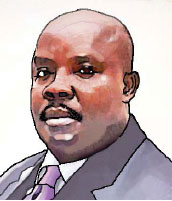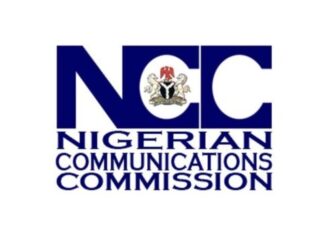By Emeka Alex Duru
(08054103327)
Few days away, Nigerians will file out for the February 16 presidential election. Though the election for members of both arms of the National Assembly (NASS) – senate and House of Representatives – will also be held simultaneously the same day, that of the president has been the topic of discussion among the voters since the Independent National Electoral Commission (INEC) unfolded the timetable, last year.
This is understandable. The President in a presidential bourgeois democracy that we practice, is the face of the system. He/She represents the collective will of the people. The strength and weakness of his/her person and character, go a long way in determining how a country and its citizens are held in other nations. If a president in a presidential democracy is sick, his/her country is down; if he/she is hale, the country is healthy. Put in other words, he/she is the poster boy/girl of the country.
This is why the February 16 Presidential Election means a lot to Nigerians. Since the commencement of the activities leading to the election, most of the voters have taken positions on who their candidate, is. Without disregard to the brilliant outings by other candidates of other political parties, the flag bearer of the ruling All Progressives Congress (APC), President Muhammadu Buhari and his Peoples Democratic Party (PDP) counterpart, Atiku Abubakar, have presented the voters with the two clear choices for the exercise. Each offers Nigerians a wide range of ideas and promises on how to take the country to the next level or refocus it entirely. Buhari, who is seeking re-election, is pledging consolidation of his performance in the last four years, which his followers, say, are exciting. Atiku on the other hand, is offering the citizens, change in strategy and delivery in governance – a New Deal of sort.
Buhari’s desire and hunger to serve the country have never been in doubt. What has however, not been established in this thirst for service, is the extent he has fared on occasions he has had the opportunity to transform his dreams to reality. In 1984, when he made his first outing as military head of state through a coup, he had raised hopes of arresting the rot in the land. With flurry of actions that included arrest and detention of political office holders and advertised attack on indiscipline among the citizenry, many had thought that the regime was out to change ways of business and governance in the land. It did not however take long for Nigerians to find out that aside marshalling orders and rash of actions on largely populist issues, the administration lacked concrete agenda in bettering the system. The economy, for instance dipped further than the General and his gang met it, while standard of living worsened. It was, therefore, hardly surprising that the government was toppled in a palace coup, led by Gen Ibrahim Babangida, in 1985 – 20 months after.
But even on retirement, Buhari never rested his quest to serve. Between 2003 and 2011, he made three unsuccessful attempts for the office – actually shedding tears in 2011, for not making it. Luck however shone on him in 2015, when he rode on the platform of the APC to beat the then President Goodluck Jonathan and his PDP.
In 2015, as in 1984, Buhari came into office on the mantra of integrity. Some have actually doubted this claim, citing instances of his fraternity with certain questionable characters, as well as some of his policies and actions that are largely tailored to favour his Fulani kinsmen. But this has not diminished his claim, at least, among his die-hard loyalists. After all, they argue, none has ever successfully accused him of amassing wealth or cornering any government contract or business to himself. They actually refer to him as Mai Gaskiya (the honest one). With this, Buhari has pranced about, shoulder-high, in the last four years.
But like sympathy in marriage which rarely lasts, there is a limit to which the claim of integrity can travel in leadership, if not anchored on programmes that are clearly designed to reposition the system. Leadership, especially in the context of the present day Nigeria, is not for the faint-hearted, if we are to get it right. It is a serious business, which the late Senate President, Chuba Okadigbo, would, in his time, advise to be approached with cool headed rationality, devoid of any philistine sentiments. That is when it can lead the country to the next level. Buhari does not have the skill and stamina to do this, truth be told.
Incidentally, he builds his re-election agenda on Next Level. That, ordinarily should mean taking Nigeria to the next step. But that is where the euphoria ends. That is also where the problem arises. He had promised creating three million jobs, while campaigning in 2015. But four years down the line, 21 million jobs have been lost; 87 million Nigerians are at various levels of poverty. Insecurity is also in the increase. Nigerians, had also never been as divided as they are, on ethnic or religious lines, many confess. These are indices that give concern on the real direction of the Next Level the president is flaunting. In 2011, he had promised to serve one term on ground that age would weigh against him in some of the policies he had in mind. Seeking and getting another term, eight years after, especially against the backdrop of obvious manifestation of inadequacy in actions and incoherence in comprehension, would amount to a great disservice to the country the president has repeatedly expressed profound love for. That could be a disaster in the waiting.
Could it be why those that had previously flocked around him are having another thought? Maybe! By this time four years ago, The Economist, an influential London Magazine, had predicted Buhari winning the election, given the floundering tendencies of the then Jonathan administration, especially on the issue of insecurity. The prediction came to pass.
This time around, the Intelligence Unit of the magazine, has tipped Atiku to win, based on various factors and considerations. The PDP candidate has also garnered endorsements from prominent Nigerians and credible organisations across the country. Among these are the Ohanaeze Ndigbo, Northern Elders Forum, Section of the Yoruba apex socio-political organisation, Afenifere, Leaders of the Middle Belt region and their counterparts from the Niger Delta. They all adopted him on account of his programmes which they think, can make Nigeria work again.
Atiku has also pledged to bridge the division among the people, presently exposing the fault lines of the country. This is a promise that cannot be wished away. Besides, he has the courage, carriage and character required for the office.












